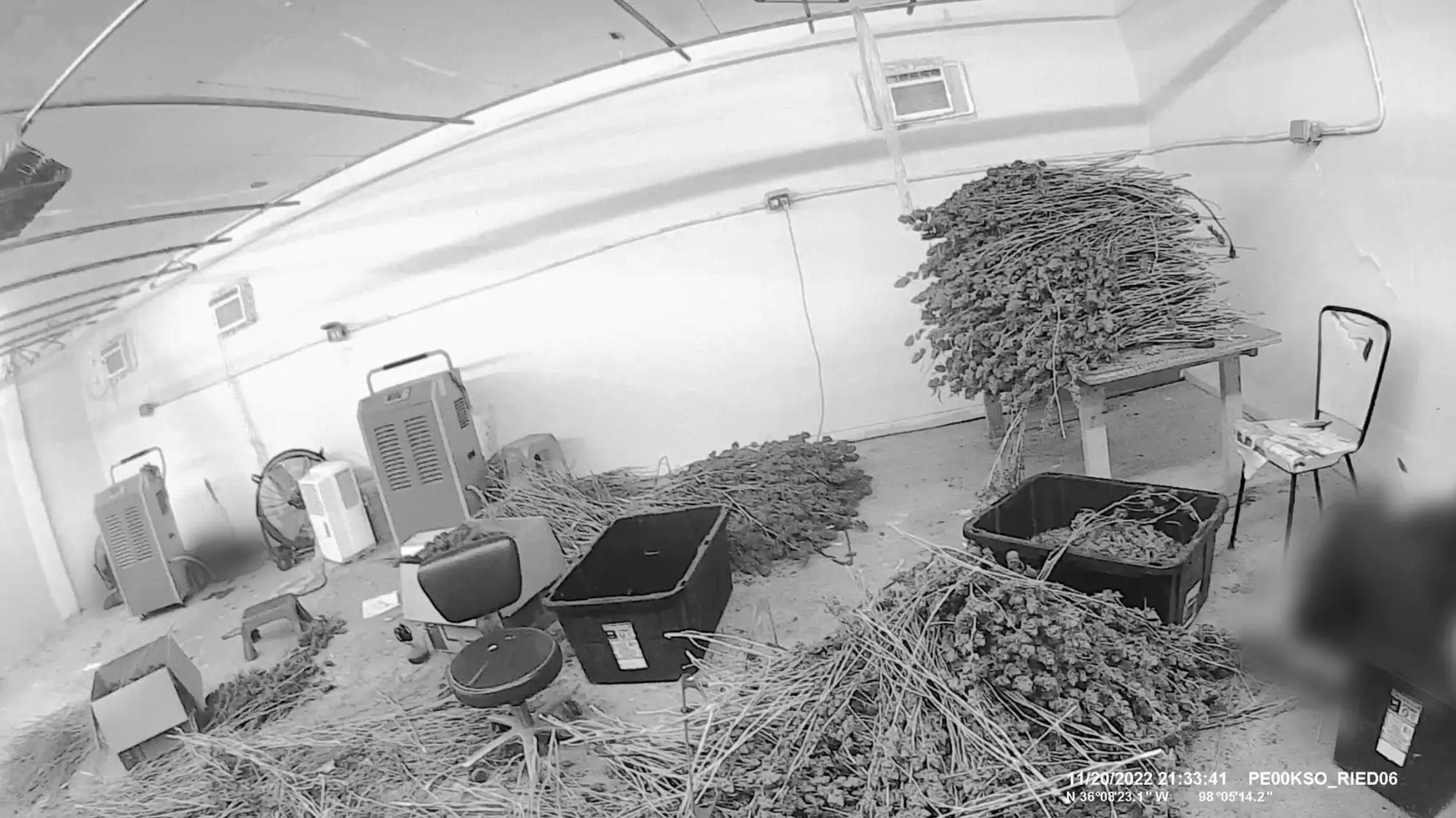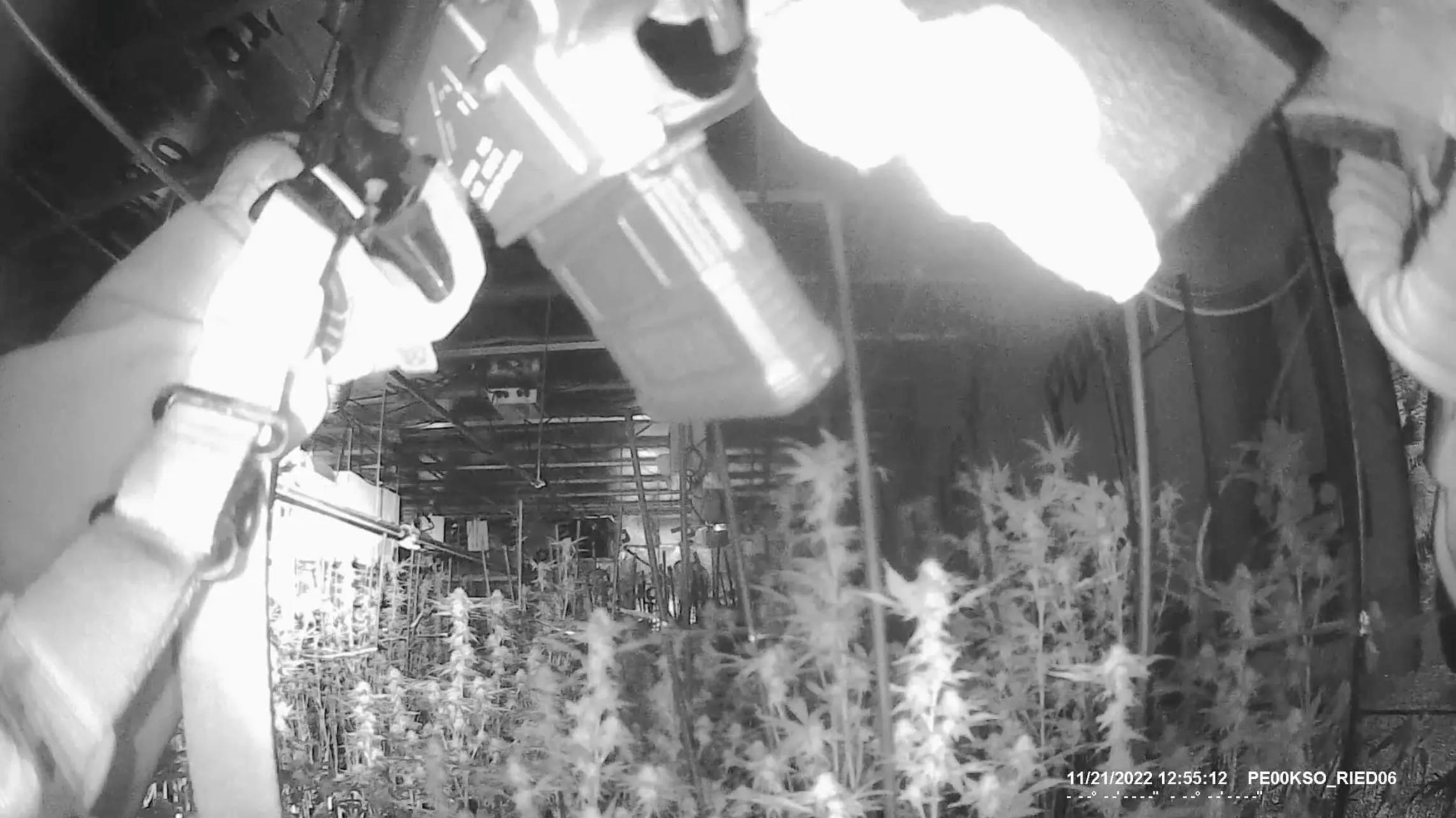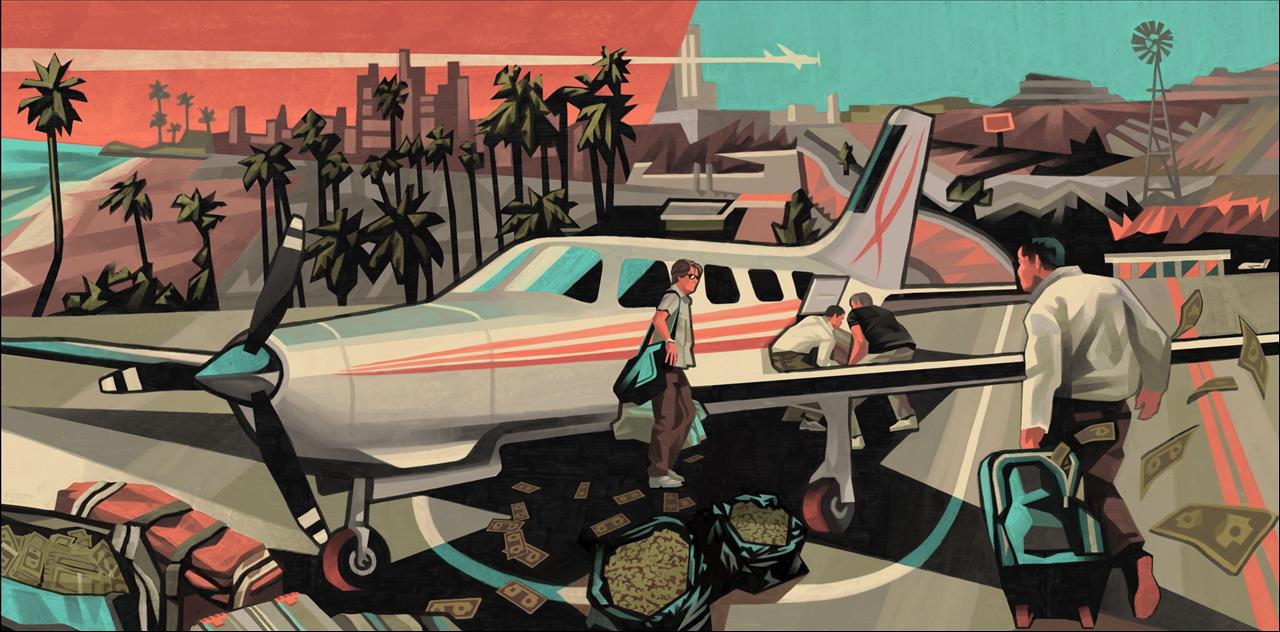(MENAFN- Asia Times) This story was first published by ProPublic , a Pulitzer Prize-winning investigative newsroom.
It seemed an unlikely spot for a showdown between Chinese gangsters: a marijuana farm on the prairie in Kingfisher County, Oklahoma.
On a Sunday evening in late November 2022, a blue Toyota Corolla sped down a dirt-and-gravel road in the twilight, passing hay meadows and columns of giant wind turbines spinning on the horizon. The Corolla braked and turned, headlights sweeping across prairie grass, and entered the driveway of a 10-acre compound filled with circular huts and row after row of greenhouses. Past a ranch house, the sedan stopped outside a large detached garage.
The driver, Chen Wu, burst out of the car with a 9 mm pistol in his hand. Balding and muscular, he had worked at the farm and invested in the illegal marijuana operation.
Charging into the garage, Wu confronted the five men and one woman working inside. Like him, they were immigrants from China. Piles of marijuana leaves cluttered the brightly lit room, covering a table and stuffed into plastic bins and cardboard boxes.

Stacks and boxes of marijuana fill the garage where four people were shot to death on a farm, shown in a still image from a sheriff's deputy's bodycam video. Credit: Kingfisher County Sheriff's Department
Wu aimed his gun at He Qiang Chen, a 56-year-old ex-convict known at the farm as“the Boss.” Chen had a temper; he was awaiting trial in the beating and shooting of a man two years earlier at a Chinese community center in Oklahoma City.
Before Chen could make a move, Wu shot him in the right knee. The boss fell to the floor, writhing in pain.
Wu held the others at gunpoint. He said Chen owed him US$300,000 and told his hostages they had half an hour to get him the money.
If they didn't, he said, he would kill them all.
Both the shooter and his victim were from Fujian, a coastal province known for mafias, immigration and corruption. They had come to America and joined a wave of new players rushing into the nation's billion-dollar marijuana boom: Chinese mobsters who roam from state to state, harvesting drugs and cash and overwhelming law enforcement with their resources and elusiveness.
Now, their itinerant odysseys had collided in this remote outpost in the heartland. The clash left four people dead and unveiled an international underworld of dangerous dimensions.
Wild West
The bloodshed in Kingfisher County made national headlines, highlighting Oklahoma's role as the latest and wildest frontier in the marijuana underworld.
From California to Maine, Chinese organized crime has come to dominate much of the nation's illicit marijuana trade, an investigation by ProPublica and The Frontier has found. Along with the explosive growth of this criminal industry, the gangsters have unleashed lawlessness: violence, drug trafficking, money laundering, gambling, bribery, document fraud, bank fraud, environmental damage and theft of water and electricity.
Chinese organized crime“has taken over marijuana in Oklahoma and the United States,” said Donnie Anderson, the director of the Oklahoma Bureau of Narcotics and Dangerous Drugs, in an interview.
Among the victims are thousands of Chinese immigrants, many of them smuggled across the Mexican border to toil in often abusive conditions at farms ringed by fences, surveillance cameras and guards with guns and machetes. A grim offshoot of this indentured servitude: Traffickers force Chinese immigrant women into prostitution for the bosses of the agricultural workforce.
The mobsters operate in a loose but disciplined confederation overseen from New York by mafias rooted in southern China, according to state and federal officials. Known as“triads” because of an emblem used long ago by secret societies, these criminal groups wield power at home and throughout the diaspora and allegedly maintain an alliance with the Chinese state.
In 2018, the mafias set their sights on Oklahoma when the state's voters approved a ballot measure that legalized the cultivation and sale of marijuana for medicinal purposes. The law did not limit the number of dispensaries or growing operations – known in the industry simply as“grows.” It requires marijuana businesses to have majority owners who have lived in the state for two years, and it bars shipping the product across state lines .
But limited enforcement enabled out-of-state investors to recruit illegal“straw owners” and to traffic weed clandestinely across the country. And land was cheap. In this wide-open atmosphere, the industry grew at breakneck speed and, regulators say, is now second only to the oil and gas industry in the state.
Since Colorado became the first state to legalize marijuana for personal use in 2012, a patchwork of marijuana-related legislation has developed across the country. State authorities generally require licenses and put limits on cultivation, and federal law prohibits interstate sales. But steep taxes on legal products and gaps and differences in laws across states have created the conditions for a massive black market to thrive.

A body-camera image shows a law enforcement officer responding to the murders at the marijuana farm. Credit: Kingfisher County Sheriff's Department
Oklahoma has quickly become a top supplier of illicit weed. Although street prices fluctuate and calculating the value of a black market is complex, officials estimate the value of the illegal marijuana grown in the state at somewhere between $18 billion and $44 billion a year. State investigators have found links between foreign mafias and over 3,000 illegal grows - and they say that more than 80% of the criminal groups are of Chinese origin.
The federal response, however, has been muted. With the spread of legalization and decriminalization, enforcement has become a low priority for the US Department of Justice, anti-drug veterans say.
“The challenge we are having is a lack of interest by federal prosecutors to charge illicit marijuana cases,” said Ray Donovan, the former chief of operations of the Drug Enforcement Administration.“They don't realize all the implications. Marijuana causes so much crime at the local level, gun violence in particular. The same groups selling thousands of pounds of marijuana are also laundering millions of dollars of fentanyl money. It's not just one-dimensional.”
The expansion into the cannabis market is propelling the rise of Chinese organized crime as a global powerhouse, current and former national security officials say. During the past decade, Chinese mafias became the dominant money launderers for Latin American cartels dealing narcotics including fentanyl, which has killed hundreds of thousands of Americans. The huge revenue stream from marijuana fuels that laundering apparatus, which is“the most extensive network of underground banking in the world,” said a former senior DEA official, Donald Im.
“The profits from the marijuana trade allow the Chinese organized criminal networks to expand their underground global banking system for cartels and other criminal organizations,” said Im, who was an architect of the DEA's fight against Chinese organized crime.
US law enforcement struggles to respond to this multifaceted threat. State and federal agencies suffer from a lack of personnel who know Chinese language and culture well enough to investigate complex cases, infiltrate networks or translate intercepts, current and former officials say. A federal shift of priorities to counterterrorism after 2001 meant resources dedicated to Chinese organized crime dwindled - while the power of the underworld grew.
And the shadow of the Chinese state hovers over it all. As ProPublica has reported , the authoritarian regime and the mafias allegedly maintain an alliance that benefits both sides. In exchange for government protection, Chinese mobsters deliver services such as illegally moving money overseas for the Communist Party elite and helping to spy on and intimidate Chinese immigrant communities, according to Western national security officials, case files, Chinese dissidents and human rights groups.
Because China has emerged as the top geopolitical rival of the United States, carrying out brazen espionage and influence activities in this country, the spread of Chinese mafias in Oklahoma and elsewhere also poses a potential national security threat, state and federal officials say.
Leaders of Chinese cultural associations in Oklahoma and other states are allegedly connected to both the illegal marijuana trade and to Chinese government officials, ProPublica and The Frontier have found. A number of influential leaders have been charged with or convicted of crimes ranging from drug offenses to witness intimidation. (A second part of this series further explores that issue.)
“You'd be very naive to sit and say the Chinese state doesn't know what Chinese organized crime is doing in the US,” Anderson said,“or that there is not a connection between the Chinese state and organized crime.”
In February, 50 US legislators wrote to Attorney General Merrick Garland expressing concern that Chinese nationals,“including those with potential ties to the Chinese Communist Party,” are“reportedly operating thousands of illicit marijuana farms across the country.”
The bipartisan group of lawmakers, who included all but two members of Oklahoma's congressional delegation, asked whether federal authorities are investigating CCP connections to the marijuana underworld and how much illicit revenue returns to China.
The Department of Justice plans to respond to the questions raised by the legislators, a department spokesperson said in an emailed statement.
“The Department is working on developing a marijuana enforcement policy that will be consistent” with federal guidance related to state legalization initiatives, said the spokesperson, Peter Carr.“Among the federal enforcement priorities under that policy is preventing the revenue from the illegal distribution of marijuana from going to criminal enterprises, gangs, and cartels.”
The department declined to comment about other issues raised in this story.
In response to a list of questions, a spokesperson for the Chinese embassy in Washington, DC, said in an emailed statement that he was“not aware of the specifics” related to Chinese organized crime in the marijuana industry. But the spokesperson, Liu Pengyu, said China wages a determined fight against drugs, the“common enemy of mankind.”
“We always ask our fellow citizens to observe local laws and regulations and refrain from engaging in any illegal or criminal activities while they are abroad,” Liu said in the written statement.“The Chinese government is steadfast on fighting drug crimes, playing an active part in international anti-drug cooperation, and resolving the drug issue with other countries including the US in an active and responsible attitude.”
ProPublica and The Frontier interviewed more than three dozen current and former law enforcement officials in the United States and overseas, as well as academic experts, defense lawyers, farmworkers, Chinese dissidents, Chinese-American leaders, human rights advocates and others. Some sources were granted anonymity to protect their safety or because they were not authorized to speak to the media.
Reporters reviewed thousands of pages of court files, government reports, news reports and social media posts in English, Chinese and other languages.

Stefano Summo for ProPublica
California Dreams
He Qiang Chen came to New York about 30 years ago from the Changle district outside Fuzhou, the capital of Fujian.
MENAFN15032024000159011032ID1107980778